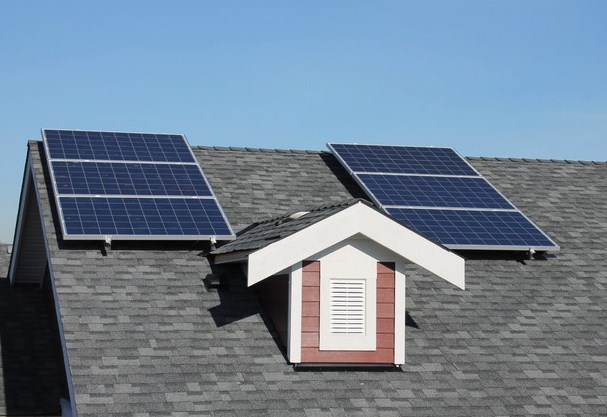The City of Richmond is stopping one step short of requiring new townhouses to have solar hot water panels.
In a bid to improve energy efficiency, a proposed bylaw amendment went to a public hearing Tuesday and should it pass through city council, new townhouses will need to be solar hot water panel ready and meet a minimum EnerGuide rating of 82; that’s two steps higher than the present BC Building Code rating of 80, which may soon rise to 81.
The bylaw comes amidst a development on Alberta Road promoting solar panels on some of its units. It’s believed to be the first promotion of its kind in the city.
Homes with ratings of 80-90 out of 100 are considered energy-efficient by Natural Resources Canada. Such homes aim to eliminate heat loss from your typical escape routes: walls, windows and door cracks. Also, energy efficient appliances are often applied.
Provincial regulations already require new single-family homes be “solar ready.” That means implementing certain structural needs into the home, such as anticipated load points, braces and space for pipe conduits.
The new energy saving guidelines are tabled in a report to council from Peter Russell, the city’s senior manager of sustainability and district energy.
The bylaw’s guidelines are proposed in the context of the city’s goals to reduce community-wide energy consumption by 10 per cent and greenhouse gas production by 33 per cent, below 2007 levels by 2020, subject to senior government action.
In July, staff noted to city councillors that the Richmond Small Home Builders group and Urban Development Institute supported the move, although they expressed concerns about costs to homebuyers.
The good news for homebuilders is that townhouses are already roughly 50 per cent more energy efficient than detached homes, according to the report, citing BC Hydro. Ergo, meeting the 82 guideline shouldn’t be too much of a challenge.
Also, it’s expected builders will be able to take advantage of BC Hydro and provincial energy rebates to meet the new standard.
The report notes construction improvements can, in a short period of time, result in energy savings to the owner that exceeds the initial investment.
Solar panels, be they photovoltaic or solar water, take years to pay off (depending on their size) but once they do, they provide energy cost savings, effectively making money for the homeowner.
The report notes “more action” needs to be taken to balance out the energy consumption of rezoning and tearing down single-family homes to build townhouses along major roads. The EnerGuide requirement will not be applied to any townhouses that are connected to a district energy utility or those which have installed proven renewable energy systems — such as solar panels — that provide at least 51 per cent of energy requirements.
According to the report, the City of Vancouver and Township of Langley have already adopted an 82 EnerGuide rating. Vancouver is considering an 84 rating.



